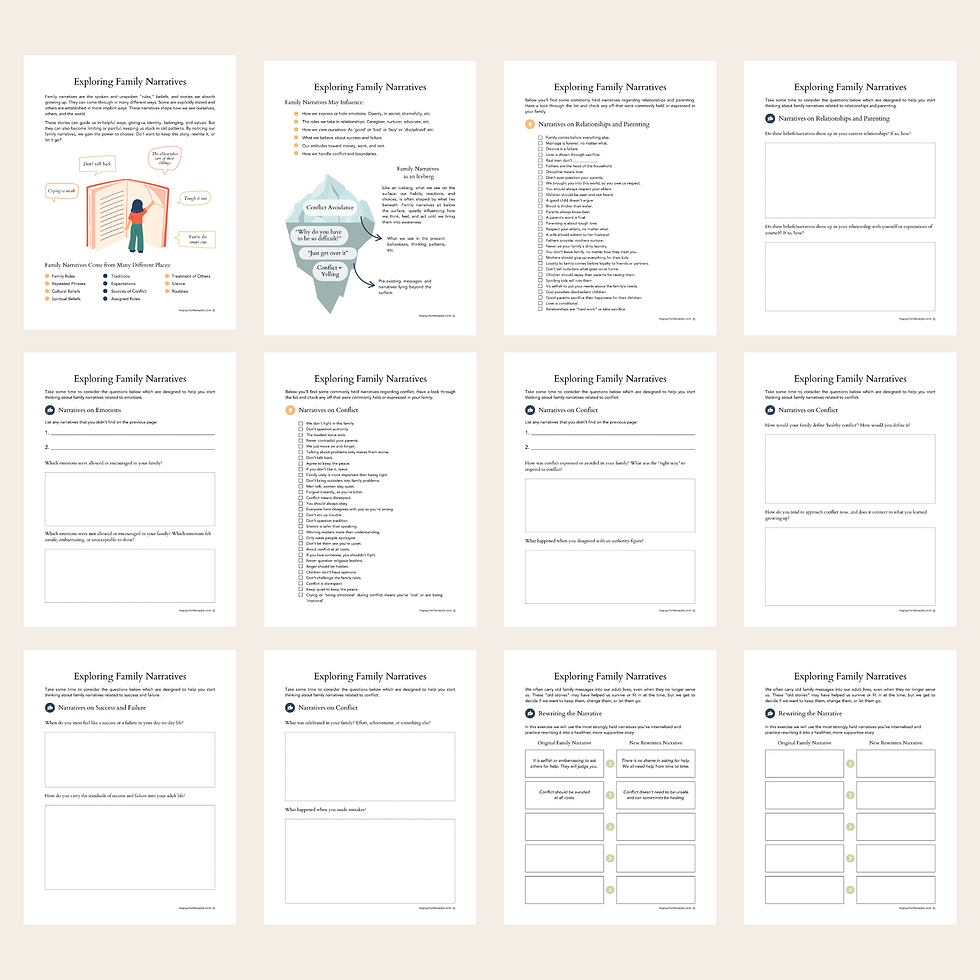Chaos to Calm: Mental Clutter Versus Mental Clarity
- Nov 20, 2023
- 3 min read
In the relentless hustle and bustle of our modern world, where the demands on our time and attention seem never-ending, finding mental clarity can feel like a distant dream. Juggling career ambitions, personal relationships, and the constant influx of information in the digital age creates a perfect storm of mental clutter. The incessant chatter of notifications, the pressure to meet expectations, and the ever-growing to-do lists can leave us feeling mentally fatigued and emotionally drained.

The Weight of Mental Clutter
Mental clutter can be likened to a chaotic and disorganized room, where thoughts, worries, and distractions compete for our attention. It manifests in the form of racing thoughts, constant worry, and an inability to concentrate. The cumulative effect of mental clutter can lead to stress, anxiety, and a sense of overwhelm, impacting our ability to make decisions and hindering our overall cognitive function.
Identifying Mental Clutter
To address mental clutter, it's essential to recognize its signs. These may include:
Persistent negative thoughts
Difficulty prioritizing tasks
Jumping from one thing to the next
Constant sense of unease
Forgeting important tasks or appointments
Putting self-care and rest on the back burner
Feeling distant from relationships and connections
Resentment towards those close to you
Pay attention to the patterns of your thinking and how they may contribute to mental clutter. Identifying the sources of mental clutter is the first step towards creating a clearer mental space.
The Importance of Mental Clarity
On the other side of the spectrum lies mental clarity—a state of mind characterized by focus, calmness, and purpose. When we experience mental clarity, we can approach tasks with a clear perspective, make decisions more effectively, and navigate life's challenges with greater ease. Cultivating mental clarity is not just about decluttering the mind but also about fostering a positive mindset and embracing mindfulness.
Strategies for Clearing Mental Clutter:
Mindfulness Meditation: Engaging in mindfulness meditation can be a powerful tool for decluttering the mind. By focusing on the present moment, individuals can distance themselves from intrusive thoughts and create mental space for clarity.
Journaling: Writing down thoughts and concerns in a journal can help externalize mental clutter. This practice allows individuals to reflect on their feelings, identify patterns, and gain a clearer understanding of their thoughts.
Prioritization: Breaking down tasks into manageable components and prioritizing them can prevent feelings of overwhelm. Setting realistic goals and focusing on one task at a time can significantly contribute to mental clarity.
Digital Detox: Constant exposure to digital devices and information overload can contribute to mental clutter. Taking breaks from technology and establishing boundaries for screen time can provide much-needed mental relief.
Healthy Lifestyle Choices: Physical health and mental well-being are interconnected. Regular exercise, a balanced diet, and sufficient sleep contribute to overall mental clarity. Taking care of your body supports a healthier mind.
Cultivating Mental Clarity
Positive Affirmations: Replace negative self-talk with positive affirmations. Cultivating a positive mindset can contribute to mental clarity by fostering a more optimistic and constructive outlook.
Releasing Unrealistic Expectations: Acknowledging that we're only human and allowing ourselves the grace to not meet every expectation can alleviate mental clutter. Embracing self-compassion and realistic goal-setting can contribute to a more balanced and clear mindset. You don't need to do it all. It's going to be ok.
Gratitude Practice: Acknowledging and appreciating the positive aspects of life through a gratitude practice can shift focus away from cluttered thoughts, promoting a sense of clarity and contentment.
Seeking Support: Don't hesitate to reach out to friends, family, or a mental health professional for support. Talking about your thoughts and concerns can help declutter your mind and provide valuable insights.
In the journey towards mental clarity, understanding the impact of mental clutter is crucial. By adopting mindfulness practices, embracing positive habits, and seeking support when needed, individuals can navigate the challenges of life with a clearer and more focused mind. Remember, the path to mental clarity is a continuous process, and small, consistent steps can lead to profound changes in your overall well-being.
Interested in learning more? Check out our mental clutter psychoeducation tool and worksheets:



































Comments